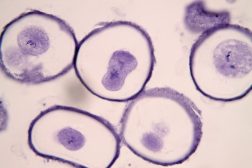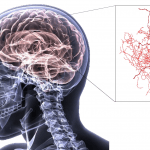Definition
noun
The branch of science that deals with the nervous system, particularly structure, development, function, chemistry, pharmacology, and pathology of the nervous system
Supplement
Neuroscience is the science of the nervous system. It is concerned with the structure, development, function, chemistry, pharmacology, and pathology of the nervous system. Thus, it encompasses various fields such as anatomy, biochemistry, physics, physiology, medicine, molecular biology, and psychology. It also serves as a fundamental field to related disciplines such as neurobiology and neuroethics. Neurobiology deals with the disorders, diagnosis, and treatment associated with the nervous system. Neuroethics is concerned with the ethics involving neuroscience, e.g. the application of neuroscience technology in attempting to alter human behaviour.
An expert in this field is called a neuroscientist. The history of neuroscience dates back to the time of the ancient Egyptians. There were manuscripts (around 1700 BC) delineating brain damage. Hippocrates, a Greek physician, posited that the brain was the seat of intelligence apart from being associated with the senses (hearing, vision, touch, olfaction, etc.). Galen, a Roman physician, supported this thought when he observed that sustained damage to the brain led to mental disorders. Modern tools and technologies such as molecular biology, electrophysiology, and computational methods led to the advancement of the scientific study of the nervous system. Thus, advance studies came about and paved way to the following sub-fields:
- affective neuroscience
- behavioural neuroscience
- cellular neuroscience
- clinical neuroscience
- cognitive neuroscience
- computational neuroscience
- developmental neuroscience
- evolutionary neuroscience
- molecular neuroscience
- neural engineering
- neuroethology
- neurogastronomy
- neuroheuristics
- neuroimaging
- neuroinformatics
- neurolinguistics
- neurophysics
- neurophysiology
- neuropsychology
- paleoneurology
- social neuroscience
Word origin: Greek neuron + science
Synonym(s):
- neurobiology
See also:









